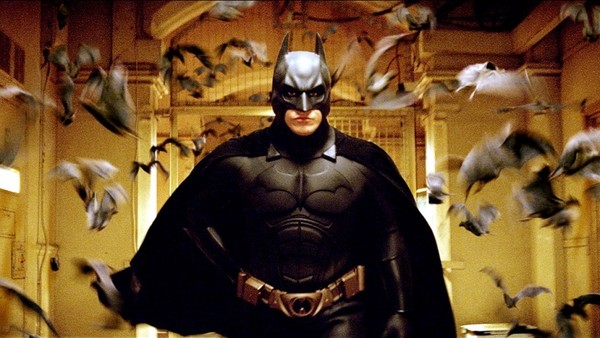13 Movies That Contradict Their Own Message
8. Batman Begins

The Intended Message: Killing is unacceptable at all costs.
The Real Message: Killing is fine if the "good" guy does it.
One of the key tenets of Christopher Nolan's Dark Knight saga is that his Batman (Christian Bale) is supposed to stringently adhere to the Caped Crusader's famous no kill rule.
The film paints Batman as a morally righteous protector of the innocent who won't kill at any cost, and yet, the film quite blatantly shows him causing the deaths of many men.
This hypocrisy is best exemplified by an early scene where Bruce Wayne refuses to execute a criminal at the behest of Ra's al Ghul (Liam Neeson). Minutes later, though, Bruce makes his escape by burning the League of Shadows' temple down, quite clearly causing countless people to burn to death or suffocate.
The much-debated climax also makes the film's morally-right depiction of Batman seem quite disingenuous. Bats leaves Ra's al Ghul to die on a derailing train, smugly quipping, "I won't kill you, but I don't have to save you." Considering he organised the circumstances through which Ghul's death came about, he most definitely killed the man by any basic legal logic.
This wouldn't be problematic at all if the Nolan movies weren't so obsessed with painting the Dark Knight as a paragon of perfect virtue.
It happens again in The Dark Knight when Batman pushes Harvey Dent (Aaron Eckhart) to his death, for though it was for a worthy cause - to save Jim Gordon's (Gary Oldman) son - the series' obstinate propping-up of an outdated honour code makes it leave a sour, incredibly daft taste.